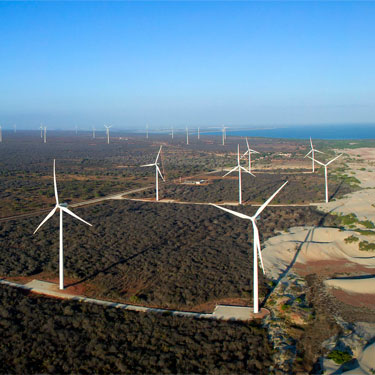
Neoenergia invests in DSO strategy, a worldwide trend in the distribution sector
The world is experiencing more and more transformations, such as digitalization and the need for decarbonization of energy use. Electrical grids are essential to support this progress and, with this, energy distributors will get new functions. Distributed generation and storage, electric vehicles, intelligent metering and automation are elements of the electric sector of the future. Aligned with the global trend, Neoenergia invests in the transition from being a Distribution Network Operator - DNO - to becoming a Distribution System Operator, the so-called DSO. This change will accelerate the adoption of new technologies and their benefits for the 14 million customers of the concessionaires of the group – Coelba (BA), Celpe (PE), Cosern (RN) and Elektro (SP/MS).
The Future Energy project, which is being concluded by Neoenergia in the region of Atibaia, São Paulo, is a Brazilian example of this new model in distribution, in which the use of new technologies and distributed generation change the flow of energy and demand a more advanced management. The company also develops technologies for decarbonization, energy efficiency and grid digitalization in the Fernando de Noronha archipelago.
"In DSO, we're talking about multi-directional energy flows, and to orchestrate them, the digitalization is needed. For this, we invest in automation, intelligent measurement, real-time systems, big data and analytics. With these technologies, we believe that the electric grids can be an integrating platform for the intelligent cities of the future, and the benefits extend to the whole society", says the Neoenergia Smart Grids superintendent, Heron Fontana.
DISTRIBUTED GENERATION
If before the energy was supplied only by the concessionaire, now consumers can produce it, as is the case, for example, of generation through photovoltaic panels installed in homes. According to the Energy Research Company (EPE), the distributed solar source had an expansion of 1.4 GW in 2019, a growth higher than all centralized sources, with the exception of hydroelectric plants. Therefore, the DSO model includes a more sophisticated measurement system, which records, in addition to the energy delivered, the one which the customer generates, requiring intelligent communication and control technologies.
In the Future Energy project, 242 solar panels were installed in the region of Atibaia, through the Energy Efficiency Program, regulated by the National Electric Energy Agency (Aneel). By the end of the year, Neoenergia will also complete the installation of 75 thousand smart meters, equipment that allows the bidirectional reading of the energy flow. These equipment also make the direct communication between the consumer unit and the concessionaire, allowing the detection of interruptions and the re-establishment in the supply in an automated way, besides allowing the follow up of the daily consumption by the customers through the service portals To ensure more efficient and secure communication of this data, the company implemented the first private 4G mobile network among companies in the electricity sector in Latin America.
"Digitization provides a new experience to customers, more energy efficiency and quality, reduces losses and contributes to the decarbonization of energy use, which is a goal of Neoenergia in the fight against climate change In the future, the sharing of communications infrastructure and operational information may also contribute to the improvement of other public services”, says Fontana.
CLEAN ENERGY
The DSO model also includes the ability to manage and measure energy flows considering the intermittence of wind and solar sources, which are growing in the country. According to the EPE Ten-Year Energy Expansion Plan, in 2030, the two should represent 16% of the installed capacity in the country - currently, they are 11%. Aligned with national energy planning, Neoenergia should expand its portfolio in the two sources in the coming years, prioritizing the generation of clean and renewable energy to contribute to the decarbonization of the economy. By 2022, the group's wind energy installed capacity in the country will triple, reaching 1.6 GW.
The company invests in new technology development projects with a sustainable bias in Fernando de Noronha. The first stage of the initiative was the installation of two solar plants, capable of meeting 10% of the archipelago's demand. Other actions are the replacement of meters with intelligent models, the construction of a supply station and the use of an electric vehicle, and the installation of an energy storage plant to maximize the use of solar generation. These initiatives were developed through Aneel's Energy Efficiency and Research and Development programs.
News
2025-12-12
Prêmio Brasil Olímpico 2025: Neoenergia reforça compromisso com esporte feminino no país
2025-12-09
Prêmio Aberje 2025: Neoenergia é campeã nacional com campanha sobre segurança na rede elétrica com Carlinhos Brown
2025-12-01
Exclusivo a mulheres negras, Prêmio Inspirar 2025, do Instituto Neoenergia, anuncia vencedoras em quatro estados e no DF
2025-11-27
Neoenergia e Honda se unem para acelerar uso do hidrogênio verde na mobilidade brasileira
2025-11-25
